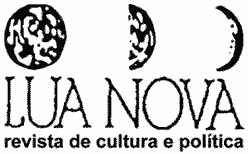Abstract
Dialoging with the different approaches present in the literature, this article tries to analyze the incidence of strikes in the different economic and political phases of Brazil in the last two decades and situating strikes within the current political and economic scenario, in addition to describing the organizational dynamics of the trade union movement. During this period, the incidence of strikes tended to decrease in times of high unemployment rates, and increase when those fell. No relation was found between strikes and wage gains. Analysis of the relationship between strikes and politics seems to corroborate the idea that in mid-left governments there is a lower volume of strikes than in mid-right governments, while the greater competition within the trade union movement, inferred by the number of unions in each year, was associated with a higher amount of strikes. These correlations, although inconclusive, indicate the way to further investigations, with the use of longer series and comparative analysis.
Keywords:
Strike; Trade Union; Institutions; Collective Action; Union Movement; Political Economy

 Fonte: Departamento Intersindical de Estatística e Estudos Socioeconômicos (Dieese). Sistema de Acompanhamento de Greves (SAG-Dieese) Nota: Horas paradas para cada 1 milhão de habitantes (população estimada, IBGE)
Fonte: Departamento Intersindical de Estatística e Estudos Socioeconômicos (Dieese). Sistema de Acompanhamento de Greves (SAG-Dieese) Nota: Horas paradas para cada 1 milhão de habitantes (população estimada, IBGE)
 Fonte: DIEESE. Sistema de Acompanhamento de Greves (SAG-DIEESE) e Laborsta/ILO. Nota: Número de greves a cada 1 milhão de habitantes.
Fonte: DIEESE. Sistema de Acompanhamento de Greves (SAG-DIEESE) e Laborsta/ILO. Nota: Número de greves a cada 1 milhão de habitantes.
 Fonte: Dieese. Sistema de Acompanhamento de Greves (SAG-Dieese)
Fonte: Dieese. Sistema de Acompanhamento de Greves (SAG-Dieese)
 Fonte: Dieese.
Fonte: Dieese.
 Fonte: Dieese. Sistema de Acompanhamento de Greves (SAG-DIEESE) e IBGE.
Fonte: Dieese. Sistema de Acompanhamento de Greves (SAG-DIEESE) e IBGE.
 Fonte: Dieese, Pesquisa Nacional por Amostra de Domicílios (Pnad/IBGE) e Pesquisa Mensal de Emprego (PME/IBGE)
Fonte: Dieese, Pesquisa Nacional por Amostra de Domicílios (Pnad/IBGE) e Pesquisa Mensal de Emprego (PME/IBGE) Fonte: DIEESE. Sistema de Acompanhamento de Greves (SAG-DIEESE) e Relação Anual de Informações Sociais (RAIS/MTE).
Fonte: DIEESE. Sistema de Acompanhamento de Greves (SAG-DIEESE) e Relação Anual de Informações Sociais (RAIS/MTE).
 * Variação média real dos reajustes monitorados pelo banco de acordos do Dieese. ** Variação do salário médio real no estado de São Paulo, trabalhador com carteira (Pesquisa de Emprego e Desemprego - PED/Dieese). Fonte: DIEESE. Sistema de Acompanhamento de Greves (SAG-DIEESE)
* Variação média real dos reajustes monitorados pelo banco de acordos do Dieese. ** Variação do salário médio real no estado de São Paulo, trabalhador com carteira (Pesquisa de Emprego e Desemprego - PED/Dieese). Fonte: DIEESE. Sistema de Acompanhamento de Greves (SAG-DIEESE)
 Fonte: Dieese e Caixa Econômica Federal.
Fonte: Dieese e Caixa Econômica Federal.